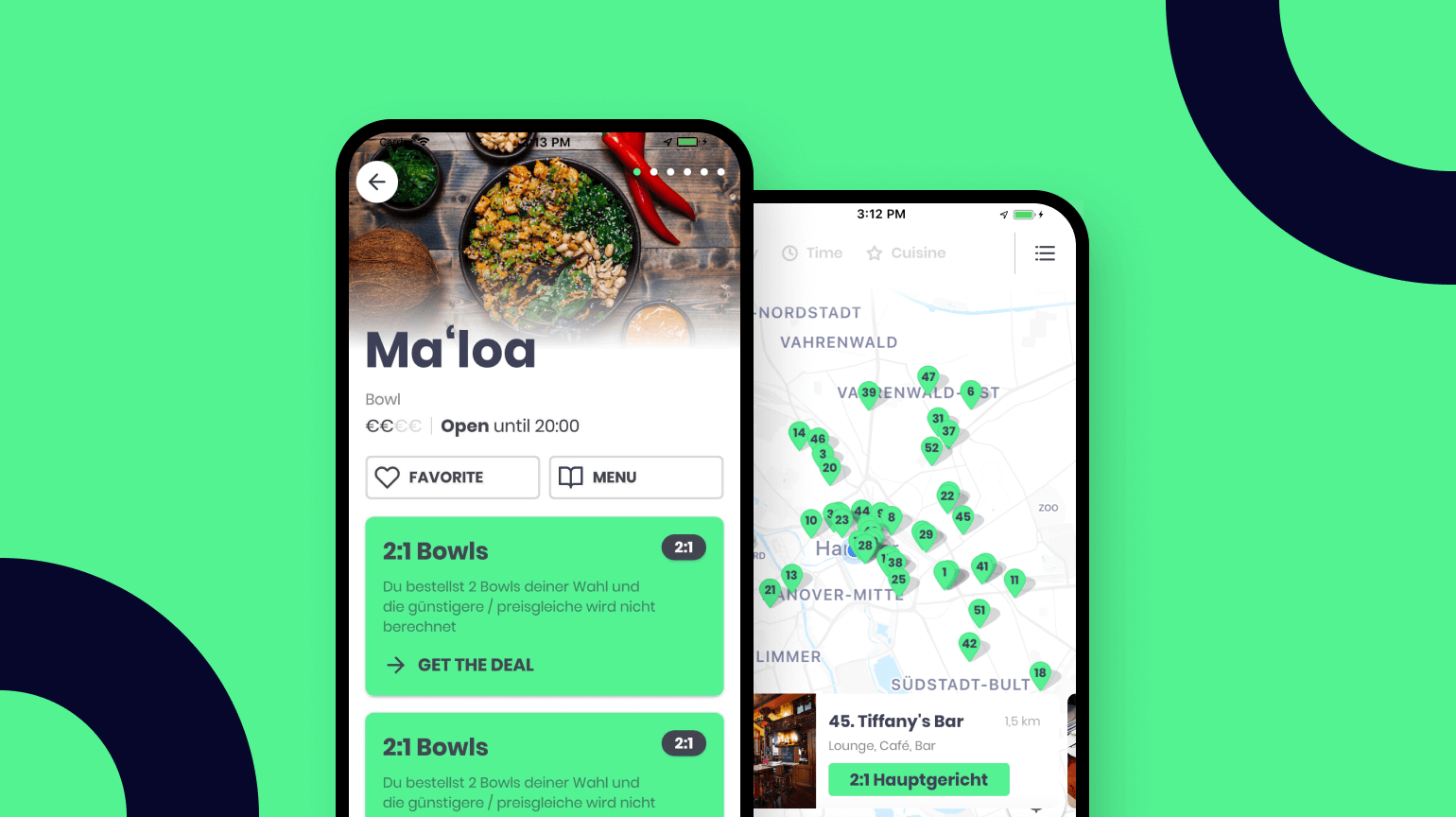QA benefits
The importance of Quality Assurance
Quality Assurance is vital on every stage of your project – no matter if you’re building a new application, extending the functionalities of an existing one, or completely rebuilding a complex system. With a properly designed QA process, the development speed won’t slow down and you will avoid critical errors that can cause further issues and general delays in production.
Benefits of Quality Assurance

Reduced development cost
Preventing errors and fixing them on the go is cheaper than facing an accumulation of them after the launch. With a focus on quality, you'll be able to deliver a secure and reliable digital solution that will bring you profit straightaway.

Increased user satisfaction
Your users will fall in love with your digital product at first sight! Thanks to a dedicated QA process, you'll be able to eliminate critical bugs before going to market, and continuously improve your application in line with your users' needs.

Risk under control
No more user flow misconceptions, delays in production, or unplanned expenses for bug-fixing. Thanks to an agile QA process, you can control the progress of the project, verify your initial assumptions, and adjust resources accordingly.

Integrate Quality Assurance into your workflow
Learn more about the opportunities of a QA strategy and a dedicated QA process
What is Quality Assurance
You might consider Quality Assurance to be a synonym to software testing. However, QA is a much broader field that encompasses all aspects of quality in software development. It’s not just about looking for bugs and fixing them – above all, it’s about preventing issues, testing various scenarios and safeguarding the project’s requirements.
QA Specialists are an integral part of top-performing teams. These cross-skilled professionals can act as a hub between designers, developers and all the stakeholders. QA Engineers check plans and assumptions against risks and limitations. They design procedures, identify issues, test the app’s features, confront each stage of development with your requirements, and proactively suggest possible improvements to the project specification. With a detail-oriented approach, they look for all kinds of errors, weaknesses, and inconsistencies, in order to provide your users with a top-notch experience. Their role is indispensable - by securing your product’s quality, they look after your brand’s reputation.
Quality Assurance is a continuous process that doesn’t (and shouldn’t!) end with the launch of the application. Though it has rules and good practices, its shape also depends on the character of the particular project. That’s why it’s vital to find a reliable QA partner that will provide you with a custom solution for your business.
Building a solid QA strategy is one of the best ways to manage risk in your software project. Identifying flaws at an early stage allows you to make necessary improvements before the final release to your customers and prevent troublesome situations. In order to properly fulfill its role, the QA process needs to be integrated with each stage of the project – from idea refinement, through design and development, up to deployment, release, and of course maintenance. Once you’ve launched your software, you need to be ready to fix any issues that may show up on the way, monitor the app’s performance, and plan continuous improvements, in line with your business goals and your users’ feedback.
Why you need Quality Assurance
Innovation can’t succeed without quality. Your users won’t easily forget the first impression with your app – and if it’s unsatisfactory, they’ll quickly back out. Errors and bugs in your commercial software may cost you a lot. From less engagement of potential customers, to decrease both in traffic and revenue. The consequences can be even more severe when it comes to banking, airline, or military software. Preventing issues is cheaper than fixing them - that's why it's crucial to assure proper quality of your project from day one.
The sooner, the better – this saying perfectly applies to Quality Assurance. If you don’t fix the errors and pay attention to critical issues from the very beginning, they will eventually cumulate into a much bigger problem, requiring a lot of time, effort and resources to solve. You can avoid such complications with an agile quality assurance process provided by a reliable partner.
The main advantages of applying a good QA strategy include:
• a comprehensive approach assuring quality in all aspects of your project (performance, security, reliability, etc.),
• reduced risks thanks to rapid verification of your goals and assumptions,
• a possibility to determine the most relevant metrics to monitor achievements and plan improvements,
• lower costs of app development due to early identification of errors,
• an opportunity to deliver a much more refined software to your users – and therefore, much more likely to succeed!
Quality Assurance is vital on every stage of your project – no matter if you’re building a new application, extending the functionalities of an existing one, or completely rebuilding a complex system. With a properly designed QA process, the development speed won’t slow down and you will avoid critical errors that can cause further issues and general delays in production.
A dedicated QA process also provides you with a digital product that is ready for a successful launch, without additional testing on your side. It’s the QA team – not you as the business owner – that will focus on fulfilling your requirements, fixing bugs, and ensuring a crash-free and secure performance of your software.
Functional & Non-functional testing
Software testing can be generally classified into two types: functional and non-functional testing. Put simply – functional testing checks if the application’s features work properly, and non-functional – if it meets the business requirements.
Functional testing covers all the technical aspects of the application and can be divided into 4 steps: unit testing, integration testing, system testing, and acceptance testing. In other words, it’s a bottom-up approach and an incremental process. We begin with testing units – single modules of the application. Then, we test what happens when we combine them into a larger part of software (integration testing) and finally we test the whole system put together. Acceptance test is the last stage, when the client who commissioned the application verifies if the software was made in line with his expectations.
Non-functional testing focuses on business- and user-related aspects of the application – such as performance, security, usability, and compatibility. The process includes cross-device and cross-browser testing and assessing security risks (especially when it comes to sensitive data). It also covers UX/UI best practices, to make sure the application is intuitive and user-friendly. An essential part of non-functional testing are also performance tests that check how the app behaves in different conditions, e.g. with low device battery or weak internet connection.
Manual & Automated software testing
Manual software testing is a process where the tester plays the role of the end-user and verifies if the app behaves correctly. The software tester looks for defects using a previously prepared test plan with clear-cut test cases, and check if any of the scenarios may cause difficulties for the user.
While manual testing is an indispensable part of a good Quality Assurance strategy, some of its activities can be automated – especially the ones that need to be repeated regularly. Test automation specialists write dedicated scripts that can verify a given module, feature, or any other part of software when necessary – for example with each integration of the application’s code. The process known as Continous Integration requires that developers integrate the code into a shared repository often – even a few times a day. Thanks to test automation, every such integration can be rapidly checked for errors, and therefore, any bugs can be easily found and fixed.
Automated Quality Assurance saves both time and resources, and is an essential part of every project we execute. Automated tests we conduct are always fully customized, according to the client’s requirements and the character of the project.
QA outsourcing to Poland
Outsourcing QA services – both in the nearshoring and offshoring models – has its strong advantages. Primarily, it can help you cut the costs of your project while maintaining top work efficiency. Less expenses for an in-house team mean more resources for your core business activities – and more time to focus on your goals.
An external partner can also provide highly desirable neutrality and objectivity when testing your digital product. If you assign testing to the same team that is responsible for the development, the results might be biased and incomplete, as it’s always difficult to see errors in your own work.
With more and more tech advancements in the field of Quality Assurance, a dedicated partner that specializes in software testing services will have access to the most innovative technologies – so you don’t need to worry about not having the right tech stack in-house.
Poland is known to be an excellent IT talent hub. Polish QA specialists provide top-class services in all areas of software testing. We aim to act as your partner and a seamless extension to your team – providing additional competencies and transparent communication at all stages of the QA process.
With QA audit, we can assess the current state of QA processes in your company and suggest how to optimize them. QA consulting services will then help you build a dedicated QA strategy and design the process to maximize your benefits.
As an experienced software testing services provider, we work across different industries - including FinTech, healthcare, manufacturing, e-commerce, real estate, and more. Providing software quality assurance services to a variety of companies, we make sure their mobile apps, ERP systems, complex desktop platforms, e-commerce projects or any other software solutions are always reliable, secure and user-friendly.
Projects Completed
Talents on Board
Countries We Work With
Years in Business

NYOUM: LOVE. A communication platform of a new kind.
We developed an Android version of our client's revolutionary audio and video messaging platform, LOVE.

NeoTaste: Deals for Foodies
We partnered with a startup from Germany that aims to provide foodies with more opportunities to enjoy a visit to a restaurant.
Got questions?
What industries do we have experience with?
Over the past few years, we've designed and developed custom solutions software for a diverse range of industries. These include healthcare, automotive, manufacturing, e-commerce, retail, travel, transportation, real estate, FMCG, education, fitness, lifestyle, and more. We have experience collaborating with startups, SaaS companies, and enterprise-level organizations. You can find examples of our work in our portfolio.
Where is our team located?
The majority of our development team is centered in Wrocław, while a few team members work remotely from various other cities. Poland is known for its exceptional IT talent pool, and Wrocław, as one of its prominent urban centers, stands out as a prime destination for companies looking for software development partners. Should you be interested in meeting our team, please visit our About page. You're also welcome to send us a message to gain insights into specific roles and access detailed profiles.
Do we transfer copyrights to the projects we develop for you?
Certainly, the code we generate essentially becomes your property. We are ready to formalize this through a contract that secures the transfer of intellectual property to you.
Can we take over a project developed by another company?
Absolutely! We're more than willing to take on such projects. However, our initial step would involve analyzing the project in order to provide you with recommendations on how to proceed. We are open to embracing such challenges, especially when it comes to implementing custom solutions.
 More services
More services







 Angry Nerds (Poland)
Angry Nerds (Poland) Angry Nerds (USA)
Angry Nerds (USA) Angry Nerds (Canada)
Angry Nerds (Canada)



